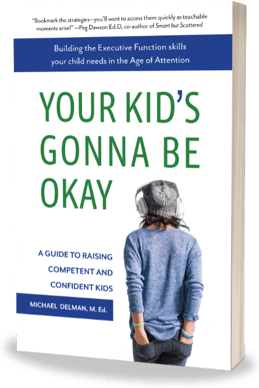Editor's note: This week, we feature guest blogger Venetia Muench, a mom with two 2E sons who has learned how to navigate the school system in order to find the most effective support for her children. Please see her full bio below.
Raising a gifted kid is easy. They always overachieve academically. Parents of gifted kids can  just sit back and watch them sail through life...right?
just sit back and watch them sail through life...right?
Wrong - in fact, not even close!
Parenting a gifted child is a challenge. Their social, emotional, and intellectual differences require continuous involvement and advocacy to help them be happy and successful in school and life. Some educators think that because of their intelligence, being gifted is easy and interventions aren’t necessary. Misconceptions like this about gifted kids often make parenting them a lonely experience, as well.
If that already complex, gifted child has yet another exceptionality, such as a learning challenge, then you have a double whammy. Twice exceptional, or 2E, children fall outside the norm on at least two attributes. Instead of becoming an expert and advocate on giftedness alone, you must also become an expert and advocate on the other exceptionality (ADHD, Nonverbal Learning Disability, Dyslexia, to name a few) and how they both impact your child. These children can be overlooked or misunderstood since their intellectual capacity can mask other challenges. They may perform academically at or above grade level, but still struggle to read social cues, for example. However, because of their acceptable academic performance, other challenges may go unnoticed and they can be deprived of needed support. On the flip side, a gifted child with a learning disability may not be identified as gifted because of underperformance in school, so their gifted needs may go unaddressed.
Either situation can cause frustration and a vicious cycle of failure when the child feels that they are not understood and their needs are not met. 2E children need both exceptionalities addressed to be fulfilled and successful. These children are often in academic environments where they are not a direct fit - so parental involvement and support is important.
There are three major steps you can take to help your 2E child thrive.
Understand
Each child is a puzzle. The impetus to beginning assessments could come from a teacher seeing something unique in your child, an amazing or disastrous year at school, or a parent’s “gut feeling” that something out of the ordinary is occurring with their child. However the assessment process begins, it’s a valuable step that lays the foundation. It’s hard to really help your child before you have a thorough understanding of what’s unique about their wonderful, complex brain. This understanding can be gained through standardized tests, IQ tests, or other assessments by medical, psychological, or educational experts. School performance likely tells only a small part of the story so further digging is often required for complete understanding, especially given the implications of multiple exceptionalities.
Research, Research, Research
As assessments and diagnoses come in, passionately research what they mean for your child, specifically. Giftedness, for example, affects different people in different ways. Children with the same IQ can have significantly different strengths and needs. There is also a wide range of giftedness; being moderately gifted is significantly different from being profoundly gifted. Understanding your child’s unique exceptionalities and their impacts are the first steps to removing their obstacles. Information can be gathered from experts in the relevant fields, published studies, books, articles written by experts, support groups, and other parents who have walked a similar path.
Make Changes
Once you understand your child’s exceptionalities and the nuances of their needs, then you’re ready to make changes to help your child. Changes can be environmental (within the classroom or home), therapeutic (with a psychologist, speech-language pathologist, or occupational therapist), or include coaching or tutoring to shore up areas of need. Changes should address both (or all) exceptionalities and not just the challenges. They may need academic acceleration, enrichment, or participation in a gifted program to address giftedness, while receiving classroom accommodations and support for other challenges. Creating collaborative partnerships with teachers and school administrators is invaluable. Use what you learned from the understanding and research to drive these conversations and enable your child to be their best.
Once these changes have been made, maintain consistent communication with your child’s teachers and others who work with them to assess effectiveness and determine if any adjustments are needed along the way. Be sure to also routinely check–in with your child to ensure they are happy and satisfied and to see if you are on the right path.
Parents of 2E children face a unique challenge to understand and advocate for not one, but two (or sometimes more) exceptionalities that impact not only academic development, but also social and emotional well-being. It can seem overwhelming and exhausting at times, but these children are pretty remarkable. When you identify the right environment and accommodations, they will soar.
photo credit: Shutterstock.com

Venetia Muench received her MBA from The University of Texas at Austin and has a background in business strategy and marketing. Her other full-time job is raising her two fantastic sons with her husband, Jeff. Venetia's passion to understand and help the gifted and twice exceptional began in 2011 with her own children. Since then she has dedicated herself to understanding their nuances through reading research, contacting experts, and attending conferences. Venetia is enrolled in a graduate program in gifted studies and is passionate about helping other parents of gifted children. She most recently led a roundtable for parents of gifted on helping these unique children make social connections. Venetia resides in Northwest Arkansas with her family and a rescue dog named Wrigley.
Please see this page for comprehensive information about Executive Function in Elementary students.
Looking for more parenting tips and strategies to help your child be successful in school and beyond? Michael Delman's book Your Kid's Gonna Be Okay: Building the Executive Function Skills Your Child Needs in the Age of Attention is now available for pre-order. Download a free excerpt below.

